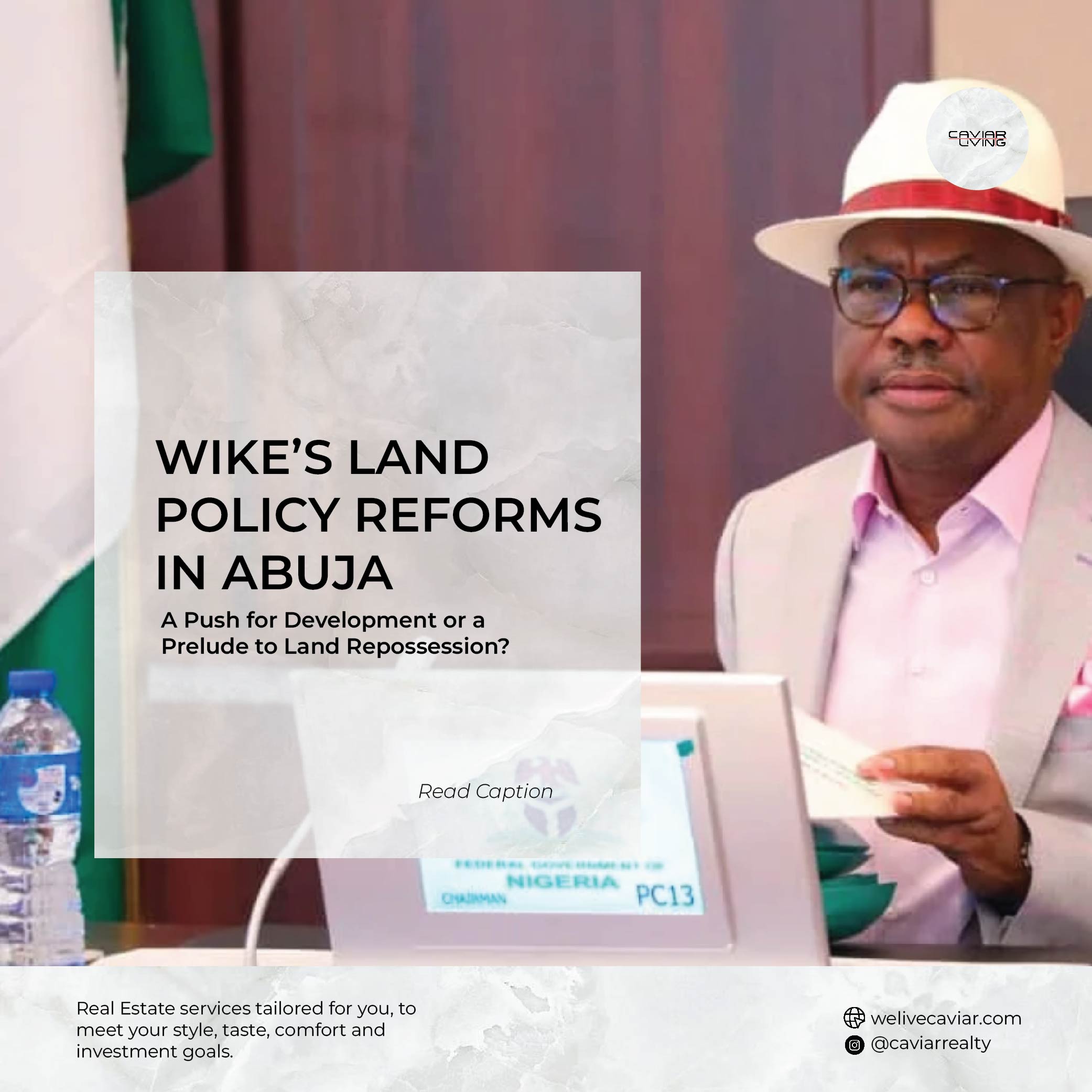
In a bold and controversial move, the Minister of the Federal Capital Territory (FCT), Nyesom Wike, recently introduced sweeping land reforms across Abuja. With the goal of fast-tracking urban development and curbing land speculation, these reforms place strict deadlines and new obligations on both new and existing land allottees.
While the policy signals a strong intent to restore order and boost infrastructure development, it has drawn mixed reactions. Supporters see it as a long-overdue correction to a stagnant system, while critics warn it could become a tool for unjust land repossession, especially among those who lack the resources to develop within tight timeframes.
Key Policy Changes
1. 21-Day Payment Deadline for New Allottees
New recipients of land allocations in the FCT must now comply with a rigid 21-day window to pay all official fees and submit their acceptance letters. According to the FCT Administration, any delay beyond this period renders the allocation invalid—regardless of whether payment is made afterward.
This measure is aimed at discouraging non-serious allottees who hold on to land without any concrete development plans, thereby contributing to the underutilization of land in the city. However, the abrupt enforcement of such a short timeline raises concerns about accessibility and fairness, especially for individuals who may require more time to raise funds.
2. Two-Year Development Mandate
In one of the most impactful changes, landowners must now commence development on their plots within two years from the date of the Right of Occupancy (R-of-O) issuance. Plots that remain undeveloped after this period risk being revoked by the government.
Wike emphasized that land in Abuja is not for “land banking” or speculation. The two-year clause is positioned as a way to push rapid development and curb the hoarding of undeveloped plots. For developers with capital, this may accelerate project timelines—but it may also put pressure on smaller investors and individuals without quick access to financing or construction support.
3. Regularization of Area Council Land Documents
Residents with valid land documents from the Area Councils now have 60 days to regularize and make full payment in exchange for statutory land titles. Those who fail to meet this deadline will lose their right to claim those plots.
This move is part of the FCT’s efforts to standardize land ownership records and bring more transparency to the process. For those in informal settlements or who bought land through traditional structures, the regularization process provides an opportunity for legal recognition—but also carries the risk of displacement if not completed swiftly.
4. Reforms in Mass Housing Schemes
Developers and subscribers in Mass Housing Estates are now required to submit formal applications for property titling through the Department of Land Administration, beginning April 21, 2025. This policy aims to clean up irregularities in the housing sector and ensure that all participants are officially documented.
The Mass Housing initiative, originally intended to provide affordable housing to the growing population, had become muddled with unauthorized developments and speculative buying. These reforms are an attempt to restore order and accountability in the sector, though the bureaucratic burden could slow down genuine participants if not well managed.
Implications and Public Response
The reforms have sparked a range of reactions across Abuja’s real estate and property-owning communities.
On one hand, real estate professionals and urban planners praise the move for its potential to breathe life into dormant plots and make Abuja more dynamic and livable. By cracking down on land speculation, the government aims to open up space for genuine developers and housing solutions.
On the other hand, citizens, civil rights advocates, and some legal experts are concerned. They argue that the policies, while necessary, must be accompanied by due process, transparency, and support for landowners. There is also fear that the enforcement could disproportionately affect average Nigerians—especially those who acquired land in good faith but may not have the funds to build within a short time.
Concerns have also been raised about whether this reform might become a convenient legal cover to revoke and reallocate prime land to politically connected individuals or private interests under the pretense of development.
Conclusion
Minister Wike’s land reform agenda marks a turning point in the management of Abuja’s urban space. While the policies promote accountability and efficient land use, they also carry high stakes for many landowners.
Striking a balance between driving development and protecting the rights of existing stakeholders will be critical. If executed fairly—with access to financial and construction support mechanisms for genuine landowners—these reforms could redefine Abuja’s landscape for the better. But if not, they risk being viewed as a systematic repossession strategy dressed in the language of progress.
The real test lies not just in policy, but in implementation, equity, and follow-through.
References:
1. Premium Times – Wike Issues New Orders to Land Owners in Abuja
2. Housing TV Africa – Wike Declares New Land Allocation Reforms


Leave a Reply